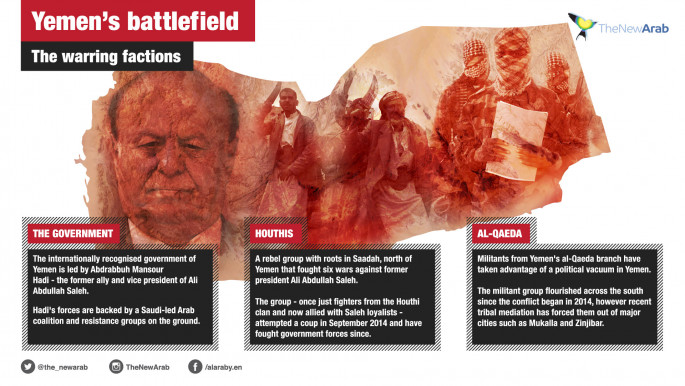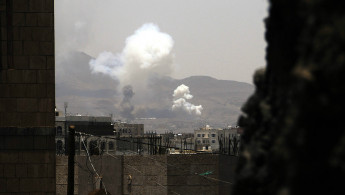US withdraws personnel supporting Saudi-led campaign in Yemen
The Pentagon also significantly reduced the number of staff assisting in the planning of the US-led air campaign on Yemen, Lieutenant Ian McConnaughey, a US Navy spokesman in Bahrain, told Reuters.
Since June, less than five US service officers remained on the Joint Combined Planning Cell [JCPC] set up last year to support the Saudi-led coalition, McConnaughey added.
This is down from around 45 US personnel who had been working on a full-time basis, providing support that included air-to-air refuelling of warplanes and sharing intelligence.
The sharp reduction of staff appears to shrink Washington's involvement in air campaign on Yemen, which has come under severe scrutiny over indiscriminate bombings and civilian deaths.
"The shift does not diminish US commitment to supporting Saudi-led military operations. The JCPC forward team that was in Saudi Arabia is now in Bahrain," Reuters reported Pentagon spokesman's Chris Sherwood as saying.
Meanwhile, US aerial tankers continue to refuel Saudi jets, he added.
If the bombing campaign on Yemen intensifies, the Pentagon may be forced to review its support, officials speaking on condition of anonymity told Reuters.
A spokesman for the Saudi-led coalition, Brigadier General Ahmed al-Asiri, declined to confirm a decrease of US support towards the campaign on Yemen.
 |
| [Click to enlarge] |
"The relationship between the kingdom and the US is a strategic one. If true, this move reflects something at a tactical level," he told Reuters, "The U.S. may move its assets, but that doesn't have any impact on the bilateral relationship between the countries."
The Saudi-led coalition has been carrying out airstrikes in Yemen since March 2015.
The conflict in Yemen pits an internationally-recognised government backed by the Arab coalition against the Shia Houthi rebels, who captured the capital, Sanaa, in September 2014.
Coalition airstrikes on northern Yemen had intensified since peace talks collapsed earlier this month.
On Thursday, medical aid group Doctors Without Borders [MSF] announced it was withdrawing from northern Yemen due to "indiscriminate bombings and unreliable reassurances" from the Arab coalition fighting Houthi rebels in the country.
The group said an attack on a hospital it supported in the area on Monday had killed 19 people and wounded 24.
"The airstrike on Abs Hospital was the fourth and the deadliest attack on an MSF-supported medical facility during this war, while there have been numerous attacks on other health facilities all over Yemen," the Geneva-based group said in a statement.
"Coalition officials repeatedly state that they honour international humanitarian law, yet this attack shows a failure to control the use of force and to avoid attacks on hospitals full of patients," MSF said, urging an independent investigation.
The group said in May that at least 100 staff members, patients and caretakers were killed, and another 130 were wounded, in aerial bombing and shelling attacks on more than 80 MSF-supported and run health structures in 2015 and early 2016.
The war in Yemen has left a security vacuum across the country. Both al-Qaeda and its main rival, the Islamic State group, have exploited the turmoil and expanded their footprint in the country's southern region.
The UN says more than 6,500 people, mostly civilians, have been killed since last March and more than 80 percent of the population needs humanitarian aid.





 Follow the Middle East's top stories in English at The New Arab on Google News
Follow the Middle East's top stories in English at The New Arab on Google News
![Israeli forces ordered bombed Gaza's Jabalia, ordering residents to leave [Getty]](/sites/default/files/styles/image_330x185/public/2176418030.jpeg?h=a5f2f23a&itok=_YGZaP1z)

